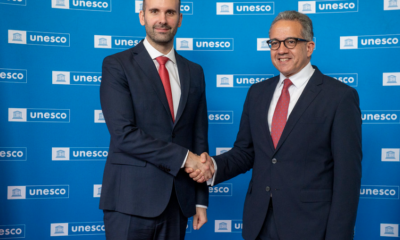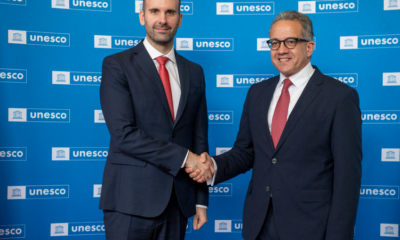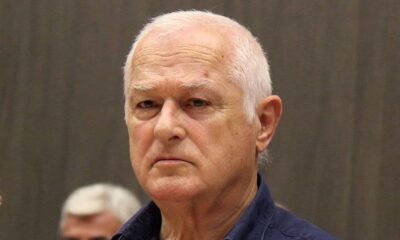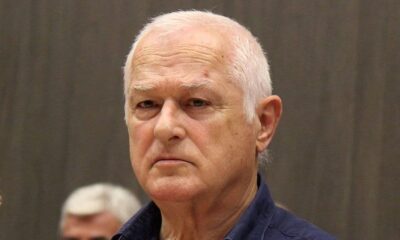Politics
Survivor Calls Out Western Silence on Gaza Genocide

A survivor of the ongoing violence in Gaza, Nour Elassy, has expressed profound disillusionment with the global response to the humanitarian crisis faced by Palestinians. Currently in Paris, Elassy critiques what she perceives as Western complicity in the violence against her people, particularly highlighting France’s selective empathy.
Elassy arrived in France after being evacuated by the French government, a fortunate outcome for a student admitted to a French university. She contrasts her experience with the public displays of support for Ukraine, noting that while Ukrainian flags adorn the city, Palestinian symbols remain largely absent. “France mourns Ukraine loudly. Gaza, on the other hand, must be whispered,” she states, underscoring the disparity in how these crises are recognized.
In her reflection, Elassy points to the historical context of France’s colonial past, suggesting that the country has not fully reckoned with its imperial legacy. She argues that France’s longstanding support for Israel, including military and diplomatic backing, stems from a shared colonial mindset rather than an innocent misunderstanding. This complicity, she asserts, is evident in the French government’s response to the violence in Gaza, where more than 63,000 Palestinians have reportedly died since October 7, 2023, with estimates suggesting the actual toll could be much higher.
Elassy’s account of the humanitarian situation in Gaza is harrowing. She describes a population where over 70 percent are women and children, many enduring extreme conditions such as starvation and lack of medical care. “Every hospital in the north has been destroyed,” she notes, emphasizing the desperate circumstances faced by those who remain. With aid trucks blocked and water sources targeted, more than two million people have been displaced.
The international community, including the United Nations and various human rights organizations, has condemned the actions in Gaza, with many declaring it a genocide. Despite this, Elassy feels that discussions in France are muted or misdirected. She highlights the paradox where calls for solidarity with Ukraine are met with passionate responses, while advocacy for Gaza is often condemned as anti-Semitic.
Elassy’s personal journey from Gaza to Paris included a United Nations-escorted evacuation, a process that stripped her of personal belongings, leaving her with only the clothes on her back. She describes the experience of crossing Israeli checkpoints as dehumanizing, a stark reminder of her trauma.
As she walks the streets of Paris, she encounters a city that celebrates freedom while her own people suffer. “Do not tell me this is just politics. It is racism. It is hypocrisy,” she asserts, calling for accountability and justice. Elassy’s plea is for Palestinian flags to be displayed alongside those of Ukraine, advocating for an understanding of solidarity that transcends race and geopolitical interests.
Ultimately, her message is clear: the conflict in Gaza is not merely a distant issue but a pressing moral challenge that demands global attention and action. As she concludes, “If solidarity depends on skin colour, borders, or geopolitical interest, it is not solidarity. It is supremacy.” Elassy’s powerful words resonate as a call for a more inclusive and compassionate response to all who suffer from violence and oppression.
-

 World2 weeks ago
World2 weeks agoCoronation Street’s Shocking Murder Twist Reveals Family Secrets
-

 Entertainment1 week ago
Entertainment1 week agoAndrew Pierce Confirms Departure from ITV’s Good Morning Britain
-

 Entertainment5 months ago
Entertainment5 months agoKate Garraway Sells £2 Million Home Amid Financial Struggles
-

 Entertainment4 months ago
Entertainment4 months agoAnn Ming Reflects on ITV’s ‘I Fought the Law’ Drama
-

 Entertainment1 month ago
Entertainment1 month agoCoronation Street Fans React as Todd Faces Heartbreaking Choice
-

 Health4 months ago
Health4 months agoKatie Price Faces New Health Concerns After Cancer Symptoms Resurface
-

 World1 month ago
World1 month agoBailey Announces Heartbreaking Split from Rebecca After Reunion
-

 Entertainment2 weeks ago
Entertainment2 weeks agoTwo Stars Evicted from I’m A Celebrity Just Days Before Finale
-

 World2 weeks ago
World2 weeks agoKevin Sinfield Exceeds Fundraising Goal Ahead of Final Marathons
-

 Entertainment4 months ago
Entertainment4 months agoCoronation Street’s Carl Webster Faces Trouble with New Affairs
-

 Entertainment4 months ago
Entertainment4 months agoWhere is Tinder Swindler Simon Leviev? Latest Updates Revealed
-

 Entertainment5 months ago
Entertainment5 months agoMarkiplier Addresses AI Controversy During Livestream Response





















